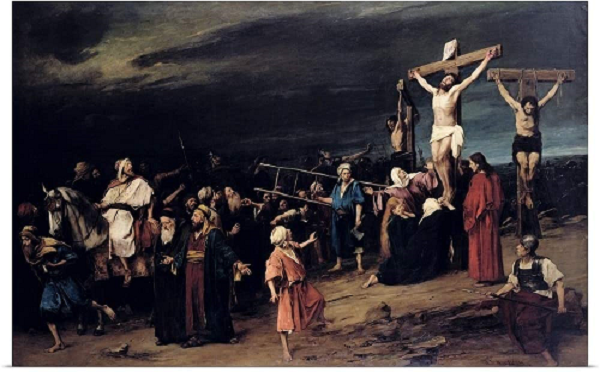April, 2005.
Romans 11:26 is a difficult text. All explanations run into problems. I do not have the final word. Like you, I am still a student of The Word. What follows seems to me to agree more with the rest of Scripture than other explanations. In former Insights, we saw that God always has a “remnant,” never an entire physical nation. We also saw that “they are not all Israel which are of Israel” (Rom. 9:6). There is a spiritual Israel within physical Israel. The question now is this: Does 11:26 predict a future date when all living physical Israel will be saved? Or is it discussing the salvation of all spiritual Israel throughout the Gospel Age? Following are some reasons why I believe the latter view.
Rom. 11:25 says that “blindness in part has happened to Israel, until the fullness of the Gentiles be come in.” What happens after that? — total blindness? no blindness? Jesus’ return? The verse does not say! We can only conjecture. Verse 26 does not begin by saying, “after that…,” or “next…” Rather, it begins with “and so,” that is to say, “thus,” “in this manner.” In this manner all Israel shall be saved. In what manner? Keep reading: “And so all Israel shall be saved as it is written.” Hundreds of years before Paul wrote this, the Holy Spirit had already predicted how all Israel would be saved. Paul appears to combine such texts as Isa. 59:20-21; and Jer. 31:31-34.
Rom. 11:26-27 reads in full: “And so all Israel shall be saved: as it is written, There shall come out of Zion the Deliverer, and shall turn away ungodliness from Jacob: for this is my covenant unto them, when I shall take away their sins.” All believers agree that the Deliverer is Christ Jesus. Were the ancient prophets speaking of Jesus’ first coming, His second coming, or both comings? Let us look in Scripture to see if all the elements mentioned in these two verses are fulfilled via Jesus’ first coming to earth. If so, there is no reason to await His second coming for fulfillment.
First, the Deliverer is connected to Zion (Jerusalem). We need look no further than Jesus’ first coming. As Jesus headed toward Jerusalem, He said, “It cannot be that a prophet perish out of Jerusalem” (Luke 13:33). Jesus was tried and condemned to death in Jerusalem. He was crucified just outside, and there He arose. As the prophets had foretold and Jesus had commanded, the gospel was first preached in Jerusalem. A most interesting text is Joel 2:28-32, which Peter quoted on Pentecost. Peter ends his quote with “whosoever shall call on the name of the Lord shall be saved.” Joel continues, “for in mount Zion and in Jerusalem shall be deliverance, as the Lord has said, and in the remnant whom the Lord shall call.” Joel predicted “deliverance” in “mount Zion” (compare Rom. 11:26) for “the remnant” (compare Rom. 11:5). This is all fulfilled in Jesus’ first coming.
Second, the predictions Paul cites say the Deliverer will “turn away ungodliness from Jacob… take away their sins.” Many claim that this did not happen in the first century because Israel still abounds in ungodliness and sins. But, wait a minute. Thirty years before Paul wrote, John the Baptist said of the Deliverer, “Behold the Lamb of God, that takes away the sin of the world.” Would anyone claim that Jesus did not fulfill John’s words when He died on the cross? God forbid. So, why should we treat similar statements about Israel any differently? Consider Peter’s words to Israel in Acts 5:30-31: “The God of our fathers raised up Jesus, whom you slew and hanged on a tree. Him has God exalted with His right hand to be a Prince and a Savior, for to give repentance to Israel, and forgiveness of sins.” God gave forgiveness of sins to Israel through Jesus’ death, resurrection, and ascension – not through His second coming.
Third, the forgiveness of sins is an integral part of the covenant foretold in the ancient prophecies. Chapters 8-10 of Hebrews make it abundantly clear that since Jesus’ death, we have a new covenant (testament), in which God no longer remembers Israel’s sins. And who is not familiar with Jesus’ words at the Last Supper: “This is my blood of the new testament [covenant], which is shed for many for the remission of sins” (Matt. 26:28). The New Covenant offers forgiveness of sins through the blood of Jesus, the Deliverer. Jesus spoke these words to twelve sons of Israel. The covenant was and is theirs, not just ours. The promised covenant became a reality for Israel the first time Jesus came to earth. Everything Paul quotes in 11:26-27 is already a reality.
All Israel saved? Spiritual Israel (Rom. 2:28-29; 9:6-8; Gal. 4:28). You say, “No, it says all Israel.” Very well. If in the future, the total generation of Jews living at that time were saved, neither would that be all Israel. It would only be one generation of Israel. Who knows the figures, but it could very well be that the remnant of all Jews saved from the time of Peter until Jesus returns is a larger number of Jews than those Jews alive in any one generation. It seems much more in harmony with Rom. 9-11 and all of Scripture to interpret “all Israel” as “all spiritual Israel of all the ages” rather than “all the Israel that is alive at or near Jesus’ second coming.”
The interpretation I have suggested does have its difficulties with a few verses in the immediate context. However, I believe the view I have suggested fits much better with all of Romans 9-11, all of the book of Romans, all of the NT, and all of the entire Bible. On the other hand, if God by His grace somehow saves all the Jews living at a future time in history, praise the Lord.
